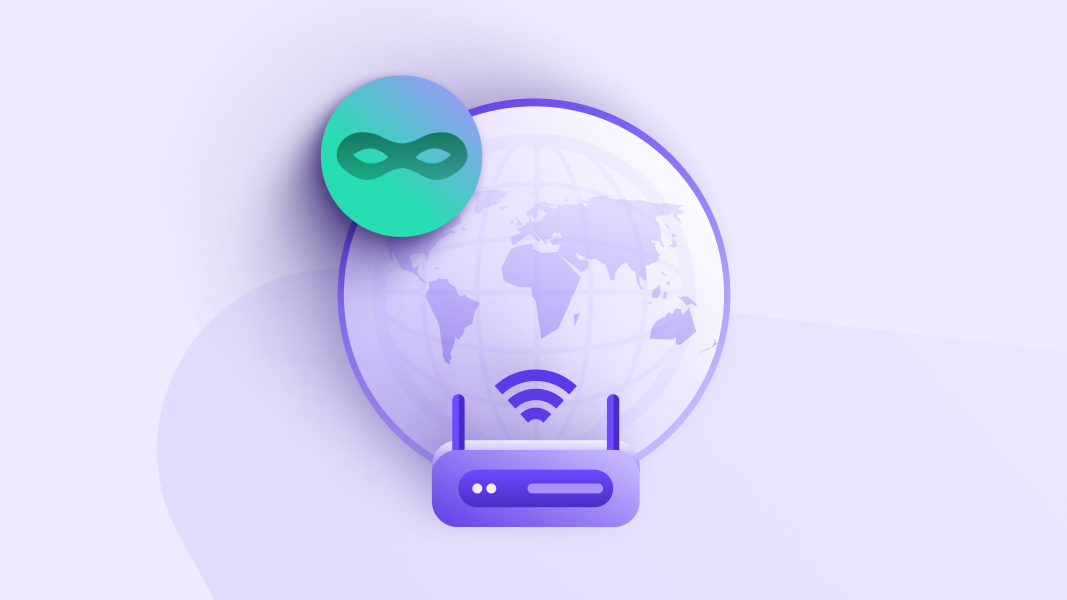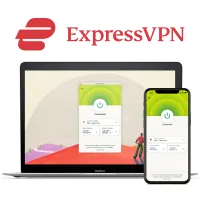VPN logging policies: what you should look for
Our full rundown on what to look for in your VPN logging policy

When it comes to choosing the best VPN provider, you should consider several factors, including privacy features, streaming, app design, device compatibility, speed, and so on.
However, in the rush to secure your online privacy, there's a possibility that you may miss out on one of the most crucial determining factors of a good provider – the zero-logging or no-logging policy. This post highlights the significance of the said policies. Read on to figure out why it is so crucial.
ExpressVPN – Get 3 months FREE with the best VPN
We think ExpressVPN is the best VPN in 2023, with great performance in just about every area. Its 30-day money-back guarantee lets you trial the service risk-free, and Tom's Guide readers can claim 3 months free.
What is a VPN logging policy?
In a nutshell, a VPN logging policy refers to the rules and procedures set by the VPN provider about the type of data they collect and store from their users. This data can range from connection logs (time and duration of VPN use and IP addresses) to usage logs (the websites you visit and the data transmitted during your VPN sessions).
The extent of these logging policies can significantly impact user privacy. If a VPN provider maintains comprehensive logs, it means they have a treasure trove of user data at their disposal. If not adequately safeguarded, this data can be misused, sold to third parties, or handed over to authorities under specific circumstances. Therefore, understanding these policies is not just a tech-savvy move but a necessity for maintaining your online privacy.

Why VPN logging policies matter
Quite simply, using a VPN with a poor logging policy can put you at serious risk. One such risk is the breach of trust. When you use a VPN, you entrust the provider with your data, expecting them to keep it secure. However, if the provider maintains extensive logs and misuses the data, it's a blatant violation of trust.
For instance, a VPN provider came under scrutiny in 2017. They were subject to serious charges like tracking, intercepting, and selling customer information. However, the company – Hotspot Shield – claimed to follow a no-log policy. This incident highlighted the fact that not all VPN providers are equal and emphasized the importance of scrutinizing their logging policies.
Moreover, logging policies directly impact how legal requests for user data are handled. In the event of a criminal investigation or court order, a VPN provider can become subject to a legal obligation. Thus, it may need to hand over user data, including browsing history, if it's stored. Therefore, a no-logs policy can be your best bet to keep your online activities private, even in the face of legal requests – if a provider hasn’t stored anything, it has nothing to hand over.
What to look for in a VPN logging policy
When evaluating a VPN, it's crucial to look at several aspects of its logging policy:
- No-log policies: The gold standard for VPN logging policies is the no-log or zero-log policy. This policy ensures the provider doesn't store any data that passes through its servers. Therefore, even if the provider is subpoenaed or hacked, your data remains safe because there's simply no data to hand over or steal. This level of privacy is what you should aim for when choosing a VPN.
- Transparency: Transparency is another critical factor to consider. A trustworthy VPN provider will be transparent about its logging policies. They should clearly state what data they collect, why they collect it, and how long it's stored. They should also clearly state their procedures regarding legal requests for data. It's always wise to read the privacy policy and terms of service thoroughly before choosing a VPN. If you require further clarification, don't hesitate to reach out to customer support.
- Data retention policies: Data retention refers to how long the VPN provider stores your data. Even if a VPN provider collects some data, it doesn't have to be a deal-breaker if they don't store it for extended periods. The shorter the data retention period, the better it's for your privacy. Ideally, you should look for providers that delete data within a few hours or, at most, a few days after your session ends.
- Jurisdiction: The jurisdiction, or the country where the VPN provider is based, can significantly impact its logging policy. Remember, every nation has its own data retention laws and regulations. VPN providers are bound to abide by them. For example, countries like the United States and the United Kingdom are part of the Five Eyes alliance, a group of countries that share intelligence and have stringent data retention laws. In such countries, VPN providers might be legally compelled to keep logs, even if they claim not to. Therefore, you might want to opt for VPNs based in countries with strong privacy laws.

Red flags to watch out for in VPN logging policies
While evaluating a VPN, there are a few red flags to keep in mind:
- Excessive data collection: If a VPN provider's logging policy mentions collecting more data than necessary for the service to function, it's a significant red flag. For instance, some VPNs collect usage logs that detail your online activities. This level of data collection is unnecessary and intrusive – avoid these providers at all costs.
- Vague logging policies: If your provider's logging policy involves foggy or ambiguous language, it could be a sign of unscrupulous behavior. This may indicate that your provider follows suspicious data practices. As such, they may obscure the extent of their data collection. Hence, it's better to steer clear of such providers.
- Poor privacy jurisdiction: As mentioned earlier, a VPN provider based in a country with unfavorable privacy laws might be compelled to keep logs. However, such a provider may still claim to adhere to a no-logs policy. To avoid hassles, you may want to overlook such jurisdictions and enjoy enhanced privacy.
Bottom line
To sum up, a zero-logging policy is crucial to a private VPN. When choosing your provider, you should not compromise here, as it may expose your data to vulnerability. Before sealing the deal, carefully analyze and understand your chosen provider's policies – if you find anything foggy, step back immediately.
It's crucial to remember that the digital world is teeming with threats to privacy. VPNs are usually considered an essential first step in avoiding these threats. However, even the strongest shield may have loopholes. Therefore, exercise extra caution and ensure privacy and data security.
Get instant access to breaking news, the hottest reviews, great deals and helpful tips.

Krishi is a VPN writer covering buying guides, how-to's, and other cybersecurity content here at Tom's Guide. His expertise lies in reviewing products and software, from VPNs, online browsers, and antivirus solutions to smartphones and laptops. As a tech fanatic, Krishi also loves writing about the latest happenings in the world of cybersecurity, AI, and software.
 Club Benefits
Club Benefits






